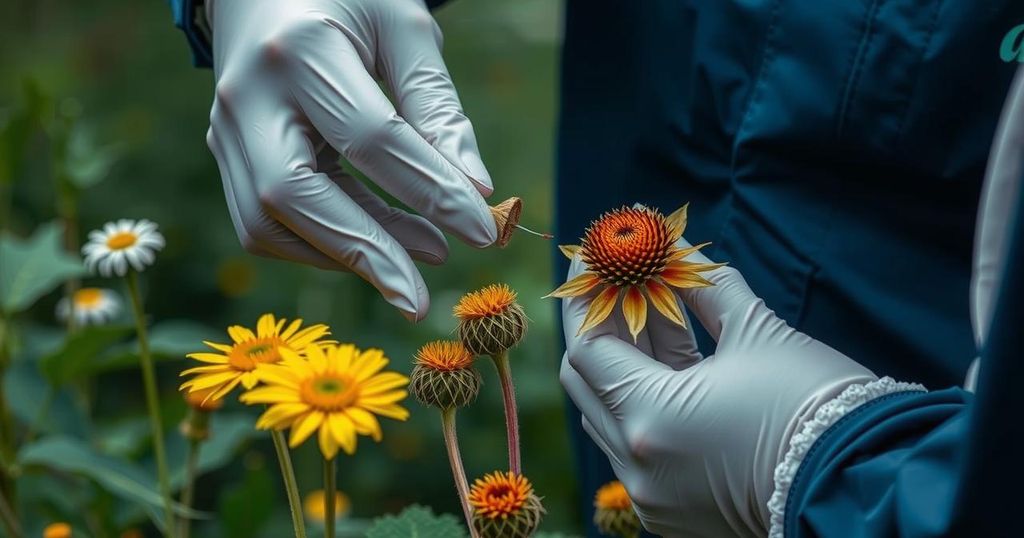Significant Seed Contributions to Svalbard Global Seed Vault Amid Global Challenges
The Svalbard Global Seed Vault has recently received 30,000 additional seed samples from 21 countries in response to concerns about climate change and global conflict. The facility aims to preserve crops against potential disasters to ensure food security and protect biodiversity. The Norwegian government, in collaboration with the Crop Trust and the Nordic Genetic Resource Center, manages this critical resource.
Concerns surrounding climate change and global tensions have led to a significant increase in seed samples sent to the Svalbard Global Seed Vault, colloquially known as the “doomsday vault,” located on Spitsbergen Island in the Arctic Ocean. This facility, designed to safeguard plant species against potential calamities such as nuclear disasters, recently received an influx of 30,000 seed samples from 21 different countries. According to Stefan Schmitz, Executive Director of the Crop Trust, the recent geopolitical climate has intensified efforts to secure biodiversity in response to threats faced by over 700 million individuals in more than 75 countries due to climate change and conflict. The Svalbard vault, opened in 2008, serves as a secure reservoir for genetic materials essential for agricultural recovery following environmental or social upheavals. It maintains a naturally cold environment due to permafrost, making it an ideal location for the preservation of seeds. Recent contributors include organizations from Bolivia and the occupied Palestinian territories, along with crucial agricultural seeds adapted for arid climates from Chad. Other nations that have participated in this effort include Bangladesh, Nigeria, Papua New Guinea, and Suriname. The vault, maintained by the Norwegian government alongside the Crop Trust and the Nordic Genetic Resource Center, was constructed at a cost of $8.8 million and remains a critical resource for countries looking to restore their plant biodiversity. As expressed by a representative from a Bolivian institution after depositing seeds collected from local farmers, “This deposit goes beyond conserving crops; it’s about protecting our culture.” The Nordic Genetic Resource Center’s Executive Director, Lise Lykke Steffensen, highlighted the essential role of genetic diversity in addressing future global challenges and emphasized the importance of the Seed Vault in securing vital collections amid current global conditions.
The Svalbard Global Seed Vault plays a pivotal role in the conservation of plant genetic resources globally. Established as a secure location for the storage of seeds, it aims to ensure the future availability of various crop types that may otherwise be lost due to disasters such as climate change, conflict, or natural events. The vault has received contributions from numerous countries and institutions, which underscores international efforts to preserve agricultural biodiversity in light of growing global uncertainties. As populations face the risks posed by environmental degradation, the strategic storage of seeds offers a potential solution for food security and cultural preservation.
In summary, the recent influx of 30,000 seed samples to the Svalbard Global Seed Vault reflects the urgent need to safeguard agricultural biodiversity amidst rising global tensions and climate change challenges. The partnership between various countries and organizations highlights the collective responsibility to protect essential plant species for future generations. The Seed Vault not only serves as a repository for genetic material but also symbolizes humanity’s efforts to confront and adapt to environmental crises.
Original Source: global.chinadaily.com.cn




Post Comment